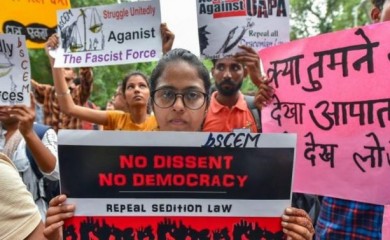NGO seeks transparency law, the regulator for social media

NGO seeks transparency law, regulator for social media
To curb the flow of misinformation on social media, a non-governmental organisation on Thursday demanded enactment of transparency laws and a regulator under Parliamentary oversight for such online platforms.
Future of India Foundation, in a report titled ‘Politics of Disinformation’, claimed that social media platforms adopted design choices, which instead led to a proliferation and mainstreaming of misinformation while allowing themselves to be weaponised by powerful vested interests for political and commercial benefits.

It claimed that the current system of content moderation was more of a public relations exercise for platforms and not aimed at stopping the spread of misinformation.
Addressing a press conference here, Future of India Foundation director Ruchi Gupta said fact-checking approach to combat misinformation applied only to a tiny subset of content selected for the purpose, while a vast ocean of unreviewed content was spreading unchecked on the platforms.
The report recommended that content moderation and its allied functions such as standard setting, fact checking and deplatforming must be embedded in the sovereign bipartisan political process for democratic legitimacy.

“At the same time, it is important to ensure that a political approach to misinformation does not degrade into legal sanction for censorship at the behest of the government,” it said.
The report stated that any regulatory body must thus be grounded in democratic principles of diversity, dissent, inclusion, transparency and accountability its own and of the social media platforms.
The NGO suggested that platforms make chronological feed default, thereby exposing the user to only that content which he has specifically opted to receive; and to ensure that all content which is put in the feed is controlled for source and quality.

It also recommended periodical review and deplatforming of a set of users who acquired high organic reach by propagating “false and divisive content” or through other inauthentic processes.
“Platforms should establish a principle of progressively more stringent content guidelines for users with high organic reach and select the top users (either top one per cent of users in a geography or all users above a certain follower threshold) for review,” it said



